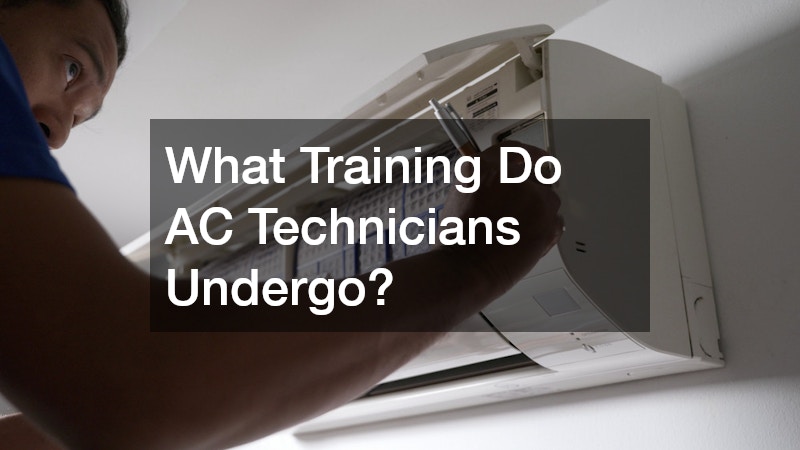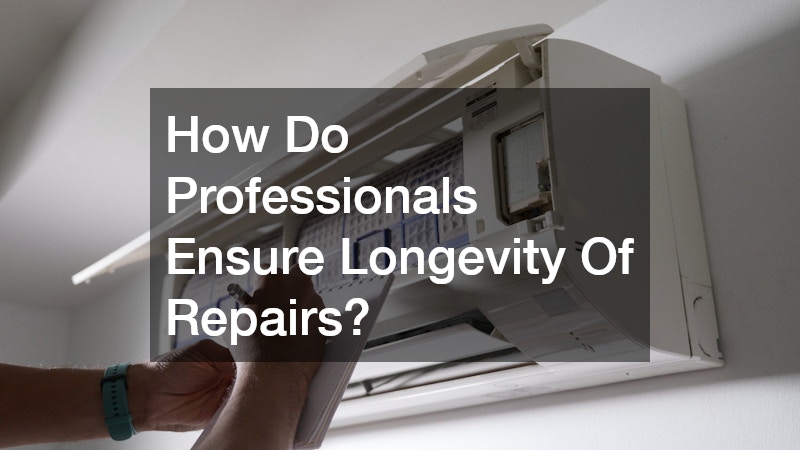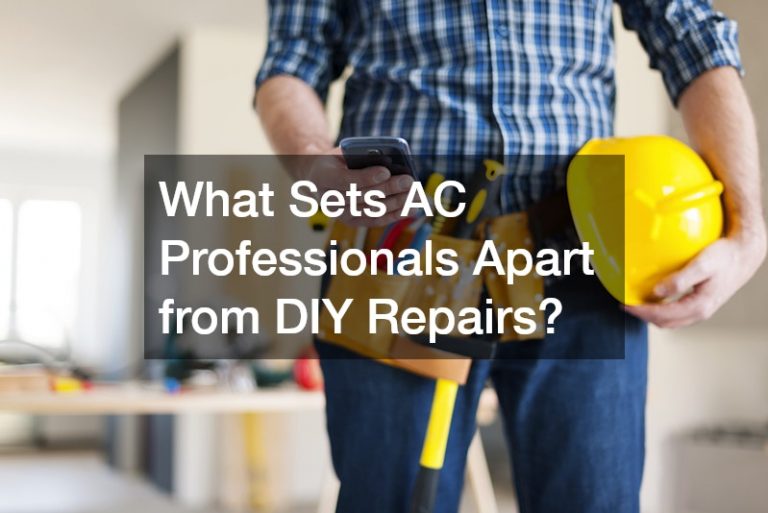In today’s world of online tutorials and home improvement shows, the DIY trend has surged in popularity. Homeowners feel empowered to tackle everything from painting to plumbing, and even more complex tasks like HVAC repair. While this enthusiasm is admirable, it’s important to recognize that some systems, particularly heating and cooling systems, require a professional touch. When it comes to air conditioning and heating, the skills, tools, and expertise of ac professionals far outweigh what most homeowners can manage themselves.
Attempting DIY HVAC repairs often leads to more problems than solutions. Not only can it result in inefficiency or further damage, but it may also create serious safety hazards and void equipment warranties. This article explores what truly sets ac professionals apart from the DIY approach. You’ll learn why hiring a certified HVAC company or contractor makes sense, the risks of going it alone, and what you can expect from professional services. If you’re tempted to fix your AC yourself, read on to understand why enlisting ac professionals is worth the investment.
Why Choose Professional AC Services Over DIY Repairs?

Expertise And Experience
AC professionals bring years of specialized knowledge to the table. HVAC systems are intricate machines with components that require specific handling and an understanding of how they interact. Unlike the general knowledge gained from a video, a professional HVAC company has hands-on experience that ensures repairs are done right the first time. They’ve likely worked on dozens, if not hundreds, of systems just like yours. Whether it’s a simple tune-up or a complex issue involving the compressor or thermostat, their depth of experience means faster, safer, and more reliable solutions. That kind of real-world skill just can’t be replicated with trial and error.
Comprehensive Diagnosis
Professionals don’t just fix the obvious problem—they perform a full diagnostic check of your entire heating and cooling system. This helps identify underlying issues that could lead to bigger problems down the road. DIY repairs often address symptoms, not the root cause, which can lead to recurring issues. An experienced HVAC contractor will catch things like refrigerant leaks, electrical issues, or airflow blockages during their assessment. Catching these problems early prevents more extensive damage, which translates to cost savings and peace of mind. It’s a proactive approach rather than a reactive one, which is key to keeping your system running long-term.
Warranty And Guarantee
Most reputable HVAC companies offer warranties or guarantees on their work. This means if something goes wrong after the repair, they’ll fix it at no additional cost. DIY repairs, on the other hand, come with no such assurance, and if you make a mistake, you’re responsible for any damage or additional repairs. Choosing a professional gives you legal and financial protection. Some HVAC repair services even provide extended warranties on parts and labor. These guarantees offer peace of mind that you simply don’t get when going it alone. You’re not just paying for a fix—you’re buying security and accountability.
What Are The Risks Of DIY AC Repairs?
Safety Concerns
Air conditioning systems involve electricity, refrigerants, and sometimes even gas components. Without proper training, homeowners can expose themselves to electric shock, harmful chemical exposure, or even fire hazards. AC professionals are trained to handle these risks safely. They know how to shut down and discharge systems correctly, wear the proper protective gear, and follow local codes to the letter. The risk of serious injury—or causing permanent damage to your home—is significantly higher when untrained hands attempt repairs. Safety isn’t just a concern; it’s a primary reason why working with a certified HVAC contractor is the smarter move.
Potential For Further Damage
What seems like a minor fix can quickly spiral into a major issue if done incorrectly. For instance, improperly handling an AC replacement could damage other parts of the system. You might unknowingly pinch a refrigerant line, short a circuit, or misalign a fan blade, all of which can result in costly consequences. HVAC companies have processes in place to avoid these mistakes, ensuring all parts work together seamlessly. One wrong adjustment from a DIY repair can force the entire unit to operate inefficiently—or not at all. When it comes to heating and cooling, guesswork can be a pricey gamble.
Voiding Warranties
Many HVAC manufacturers specify that their equipment must be serviced by certified professionals. DIY repairs could void your warranty, leaving you to pay out of pocket for any future heating and cooling problems. Even if your DIY fix seems successful, the manufacturer may refuse to honor the warranty because an unlicensed individual performed the repair. AC professionals maintain your warranty’s integrity by following correct procedures, using approved parts, and keeping detailed records. So if your system needs a furnace repair or AC replacement later down the road, you’ll still be protected. In short: DIY today could cost you big tomorrow.
How Do Professional AC Technicians Diagnose Issues?
Advanced Diagnostic Tools
Ac professionals use specialized tools that are not available to the average homeowner. These tools can detect issues that aren’t visible to the naked eye, ensuring a more accurate diagnosis.
Systematic Problem Assessment
Rather than guessing, HVAC contractors follow a systematic approach. They inspect the full system—electrical, mechanical, and airflow components—before making any repairs. This methodical process ensures nothing is overlooked.
Tailored Repair Strategies
Every HVAC system is different, and professionals tailor their repair strategies to fit your specific model and situation. They know which parts to replace, when an ac replacement is more cost-effective, and how to optimize performance.
What Training Do AC Technicians Undergo?

Certifications And Licenses
To become an HVAC contractor, individuals must undergo extensive training and obtain the necessary certifications and licenses. These credentials ensure they understand safety codes, proper repair techniques, and current industry standards.
Ongoing Education
The HVAC industry evolves constantly with new technology and regulations. Ac professionals participate in continuing education to stay updated on the latest advancements in heating and cooling systems.
Hands-On Experience
Beyond classroom training, professionals gain invaluable on-the-job experience. This hands-on knowledge enables them to handle complex repairs that no online tutorial could fully prepare a homeowner for.
How Do Professionals Ensure Quality And Safety?
Adherence To Standards
Professional HVAC companies adhere to local building codes and industry standards, which not only ensures your system runs efficiently but also keeps your home safe. They stay updated on evolving regulations, ensuring your repairs or installations meet the latest requirements. These standards help protect homeowners from fire risks, electrical hazards, and inefficient energy use, which DIY efforts often overlook.
Use Of Safe And Proper Equipment
Ac professionals use equipment that meets safety standards and is specifically designed for HVAC repairs. This reduces the risk of accidents and ensures precise repairs. They also maintain their tools to optimal condition, ensuring every repair is conducted with reliable, calibrated instruments. Professionals also wear personal protective equipment (PPE) to prevent injury while working with electrical components and refrigerants.
Thorough Testing Procedures
After completing repairs or furnace installations, professionals test the system thoroughly to ensure it’s working optimally. They check for leaks, correct airflow, and proper thermostat calibration to guarantee long-term performance. They also run multiple diagnostic cycles and monitor the system over time to catch intermittent issues that might not appear right away.
What Equipment And Tools Do Professionals Use?
Specialized Tools
HVAC contractors use a variety of specialized tools such as manifold gauges, refrigerant recovery machines, and vacuum pumps. These are crucial for performing accurate and safe repairs. Many of these tools are expensive and require training to use properly, which is why homeowners rarely have access to them.
Advanced Technology
Many HVAC companies utilize advanced diagnostic software to detect subtle problems and optimize system settings. This technology allows them to provide more efficient solutions and ensure the system runs at peak performance. From Wi-Fi-enabled monitors to smart thermostats, these tools help deliver cutting-edge results.
Diagnostic Equipment
Tools like thermal imaging cameras and airflow meters help professionals pinpoint problem areas that would be impossible to detect without proper training and equipment. These diagnostic tools help identify hidden leaks, poor insulation, or faulty electrical connections that a DIY inspection could easily miss.
What’s The Cost Comparison Between DIY And Professional Repairs?

Upfront Costs
At first glance, DIY repairs might seem cheaper. But without the right tools and expertise, you could end up spending more on parts you don’t need or causing further damage. Professionals can source parts at better prices, and their repairs tend to last longer, saving you repeat costs.
Long-Term Savings
While hiring ac professionals has a higher upfront cost, it can save you money in the long run. Proper repairs increase energy efficiency, extend the life of your system, and prevent future breakdowns. Regular professional maintenance can lower your monthly utility bills, adding even more savings.
Cost Of Mistakes
If a DIY repair goes wrong, the cost of fixing the mistake can far exceed the cost of hiring a professional HVAC contractor from the start. Botched repairs may even result in system replacement, which could cost thousands more than a proper repair done by a pro.
How Do Professionals Handle Emergency Repairs?
Quick Response Times
Many HVAC companies offer emergency services with quick response times, often within the same day. DIY repairs simply can’t compete when your home’s temperature becomes unbearable. Professionals also come prepared to handle a wide variety of issues on the spot.
Availability Of Replacement Parts
Professionals have access to a wide range of replacement parts and know where to source them quickly. Waiting for parts to ship during a DIY repair can leave you without heating and cooling for days. In contrast, HVAC contractors often carry common parts in their service vehicles.
Efficient Problem Resolution
Because of their experience and tools, professionals resolve problems more efficiently, minimizing disruption to your daily life. Whether it’s a furnace repair or an ac replacement, they know how to get it done fast without cutting corners, ensuring your system is reliable after repair.
What Should Homeowners Consider When Hiring An AC Professional?
Checking Credentials
Always make sure your HVAC contractor is licensed, insured, and certified. This ensures they meet industry standards and are accountable for their work. Credentials also indicate the technician has undergone rigorous training and adheres to safety practices.
Reading Reviews And References
Check online reviews and ask for references from past clients. A reputable HVAC company will gladly provide testimonials that speak to their quality and reliability. Positive reviews and word-of-mouth recommendations are strong indicators of good service.
Understanding The Scope Of Services
Different HVAC companies specialize in different services. Some focus on furnace installations, while others excel at ac replacement or HVAC repair services. Make sure the contractor you hire fits your specific needs and can handle both routine and complex issues.
How Do Professionals Ensure Longevity Of Repairs?

Routine Maintenance
Ac professionals don’t just fix problems—they help prevent them. Regular maintenance from a trusted HVAC contractor can extend your system’s life and improve its efficiency. Scheduled checkups can also help catch small problems before they become major repairs.
Quality Replacement Parts
Professionals use high-quality, manufacturer-approved parts during repairs and replacements. This helps your heating and cooling system run better and last longer. They also ensure that parts are properly matched to your system’s make and model.
Follow-Up Services
Reputable HVAC companies offer follow-up services to check that everything continues to operate smoothly after a repair or installation. This ensures any lingering issues are addressed promptly, and it gives homeowners peace of mind that their investment is protected for the long term.
Conclusion
While the rise of DIY culture has encouraged many homeowners to take repairs into their own hands, it’s clear that some tasks are better left to the experts. When it comes to your home’s air conditioning and heating system, ac professionals offer unmatched expertise, tools, and assurances that DIY efforts simply cannot replicate. From accurate diagnostics to safe and efficient repairs, they protect both your investment and your peace of mind.
Hiring a professional HVAC company or contractor may cost more upfront, but it pays off in terms of safety, longevity, and efficiency. Whether you need a quick furnace repair, a full ac replacement, or routine maintenance, trusting trained professionals ensures that the job is done right the first time. So, next time your heating and cooling system falters, skip the DIY videos and call in the pros—your home, your wallet, and your family’s comfort will thank you.
